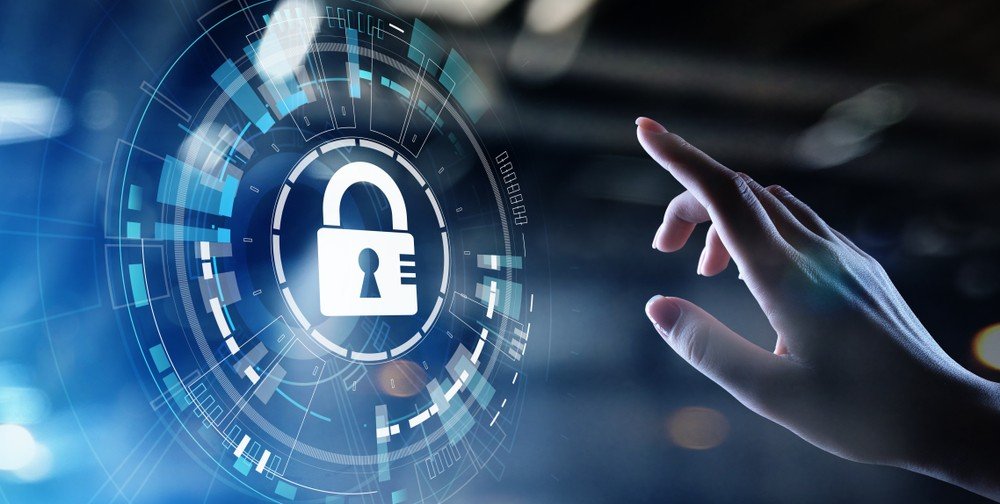In today’s digital landscape, finding the best cybersecurity software for small business isn’t just a luxury—it’s an absolute necessity. With cyber attacks targeting small businesses every 39 seconds, according to recent statistics, protecting your company’s digital assets has never been more critical. Small businesses face unique challenges when selecting cybersecurity solutions, from limited budgets to minimal IT expertise. However, choosing the right cybersecurity software can mean the difference between thriving in the digital economy and becoming another statistic. This comprehensive guide will help you navigate the complex world of cybersecurity solutions, ensuring your small business stays protected without breaking the bank.
Why Small Businesses Need Dedicated Cybersecurity Software
Small businesses often operate under the dangerous misconception that cybercriminals only target large corporations. This false sense of security leaves them vulnerable to devastating attacks that can permanently damage their reputation and financial stability.
The reality is that 43% of cyber attacks specifically target small businesses, yet only 14% are adequately prepared to defend themselves. Small businesses are attractive targets because they typically have valuable data but weaker security measures compared to larger enterprises.
The Growing Threat Landscape
Modern cyber threats have evolved far beyond simple viruses and malware. Today’s small businesses face sophisticated attacks including:
Ransomware attacks that encrypt business-critical files and demand payment for decryption keys. These attacks have increased by 485% in recent years, with average ransom demands reaching $200,000 for small businesses.
Phishing schemes target employees through deceptive emails designed to steal login credentials or install malicious software. These attacks succeed 30% of the time when they reach an employee’s inbox.
Business Email Compromise (BEC) attacks involve cybercriminals impersonating executives or vendors to trick employees into transferring funds or sharing sensitive information. The FBI reports that BEC attacks cost businesses over $2.4 billion annually.
Supply chain attacks compromise third-party vendors to gain access to multiple businesses simultaneously. These attacks are particularly dangerous for small businesses that rely heavily on external service providers.
Essential Features to Look for in Small Business Cybersecurity Software

When evaluating cybersecurity solutions, small business owners should prioritize software that offers comprehensive protection without overwhelming complexity.
Real-Time Threat Detection and Response
The best cybersecurity software for small business must provide continuous monitoring and immediate response capabilities. Advanced threat detection uses machine learning algorithms to identify suspicious activities and potential security breaches before they cause damage.
Look for solutions that offer:
- Behavioral analysis to detect unusual user activities
- Network traffic monitoring for suspicious data transfers
- Automated threat isolation to contain potential breaches
- Real-time alerts with detailed threat information
Multi-Layered Protection Approach
Effective cybersecurity requires multiple layers of defense working together seamlessly. A comprehensive solution should include:
Endpoint protection that secures all devices connected to your network, including computers, smartphones, tablets, and IoT devices. This protection should extend beyond traditional antivirus software to include advanced threat detection and device management capabilities.
Email security features that filter out phishing attempts, malicious attachments, and spam before they reach employee inboxes. Advanced email protection uses artificial intelligence to analyze message content, sender reputation, and attachment behavior.
Web protection that blocks access to malicious websites and prevents drive-by downloads. This feature is crucial as 68% of malware infections originate from web-based attacks.
Data loss prevention (DLP) capabilities that monitor and control how sensitive information is shared, stored, and transmitted. DLP solutions help ensure compliance with regulations like GDPR, HIPAA, and PCI DSS.
User-Friendly Management Interface
Small businesses typically lack dedicated IT staff, making ease of use a critical factor in cybersecurity software selection. The ideal solution should offer:
- Intuitive dashboards that provide clear security status overviews
- Simple policy configuration without requiring technical expertise
- Automated updates and maintenance to reduce administrative burden
- Clear reporting and analytics to track security metrics
Top Cybersecurity Software Solutions for Small Businesses
Enterprise-Grade Solutions Scaled for Small Business
Microsoft Defender for Business represents one of the most comprehensive cybersecurity platforms specifically designed for small and medium-sized businesses. This solution integrates seamlessly with Microsoft 365 applications and provides enterprise-grade protection at a fraction of the cost.
Key features include advanced threat protection, endpoint detection and response, and automated investigation capabilities. The platform uses Microsoft’s global threat intelligence network to provide real-time protection against emerging threats.
Pricing starts at $3 per user per month, making it an affordable option for growing businesses. The solution is particularly attractive for businesses already using Microsoft 365, as it integrates naturally with existing workflows and applications.
Bitdefender GravityZone Business Security offers comprehensive protection through a cloud-based management console that’s perfect for small businesses without dedicated IT departments. The solution provides multi-layered protection against malware, ransomware, and advanced persistent threats.
Notable features include web protection, firewall management, device control, and vulnerability assessment. The centralized management console allows business owners to monitor and manage security across all devices from a single interface.
Pricing varies based on the number of protected endpoints, with volume discounts available for larger deployments. The solution offers excellent value for businesses seeking enterprise-grade protection with small business pricing.
Budget-Friendly Options with Essential Protection
Norton Small Business provides essential cybersecurity protection designed specifically for small business needs and budgets. While not as feature-rich as enterprise solutions, it offers solid protection for businesses with basic security requirements.
The solution includes antivirus protection, firewall management, spam filtering, and basic web protection. Norton’s reputation engine provides excellent protection against known threats, making it suitable for businesses in low-risk industries.
ESET Endpoint Security combines powerful threat detection with minimal system impact, making it ideal for small businesses with older hardware or limited resources. The solution provides comprehensive malware protection, web filtering, and device control capabilities.
ESET’s reputation for lightweight protection makes it particularly suitable for businesses that can’t afford to slow down their operations with resource-intensive security software.
Comparing Costs and Value Propositions
Understanding Total Cost of Ownership
When evaluating cybersecurity software, small business owners must consider more than just the initial subscription cost. The total cost of ownership includes implementation time, training requirements, ongoing management, and potential downtime.
Per-user pricing models are common among cloud-based solutions, with costs typically ranging from $2 to $15 per user per month. These models are predictable and scale with business growth, making them ideal for small businesses with fluctuating workforce sizes.
Per-device pricing models charge based on the number of protected endpoints, regardless of users. This approach can be more cost-effective for businesses with multiple devices per employee or shared workstations.
Flat-rate pricing models offer unlimited protection for a fixed monthly or annual fee. These models work best for larger small businesses with stable device counts and can provide significant savings compared to per-user models.
ROI Considerations for Small Business Cybersecurity
The average cost of a data breach for small businesses exceeds $120,000, not including long-term reputation damage and customer loss. When viewed against this potential cost, even premium cybersecurity solutions represent excellent value.
Consider these ROI factors when evaluating solutions:
- Prevented downtime from malware infections or ransomware attacks
- Avoided regulatory fines from compliance violations
- Preserved customer trust and brand reputation
- Reduced insurance premiums through demonstrated security measures
- Increased productivity through reliable, secure systems
Implementation Best Practices
Planning Your Cybersecurity Deployment
Successful implementation of the best cybersecurity software for small business requires careful planning and phased rollout. Start by conducting a comprehensive security assessment to identify current vulnerabilities and protection gaps.
Inventory all devices that will need protection, including computers, servers, mobile devices, and IoT equipment. This inventory helps determine licensing requirements and ensures complete coverage.
Identify critical data and systems that require priority protection. Focus initial efforts on securing your most valuable assets while gradually expanding coverage to all business systems.
Develop security policies that define acceptable use, password requirements, and incident response procedures. These policies should be clearly communicated to all employees and regularly updated as threats evolve.
Employee Training and Awareness
Even the best cybersecurity software cannot protect against human error or social engineering attacks. Comprehensive employee training is essential for maximizing your security investment.
Phishing awareness training should be conducted regularly, with simulated phishing tests to measure employee readiness. Studies show that proper training can reduce successful phishing attacks by up to 70%.
Password management education helps employees understand the importance of strong, unique passwords for each account. Consider implementing a password manager solution to simplify secure password practices.
Incident reporting procedures ensure that potential security issues are quickly escalated to appropriate personnel. Employees should know how to recognize and report suspicious activities without fear of punishment for honest mistakes.
Ongoing Management and Monitoring
Cybersecurity is not a “set and forget” solution. Regular monitoring and management are essential for maintaining effective protection.
Schedule regular security assessments to identify new vulnerabilities and ensure that security measures remain effective against evolving threats.
Monitor security dashboards daily to stay informed about threat activity and system health. Most modern solutions provide mobile apps for convenient monitoring on the go.
Maintain software updates for both cybersecurity tools and all business applications. Automated update policies help ensure that security patches are applied promptly.
Industry-Specific Considerations

Healthcare and HIPAA Compliance
Healthcare organizations must ensure their cybersecurity solutions support HIPAA compliance requirements. Look for software that offers:
- Encryption for protected health information (PHI)
- Access controls and audit logging
- Business associate agreements from vendors
- Data loss prevention specifically designed for healthcare data
Financial Services and PCI Compliance
Financial service providers need cybersecurity solutions that support PCI DSS compliance:
- Network segmentation capabilities
- Regular vulnerability scanning
- Strong access controls and authentication
- Compliance reporting and documentation
Retail and E-commerce Security
Retail businesses require specialized protection for:
- Point-of-sale (POS) system security
- E-commerce platform protection
- Customer data encryption
- Payment card industry compliance
Future-Proofing Your Cybersecurity Investment
Emerging Threats and Technologies
The cybersecurity landscape continues evolving rapidly, with new threats emerging regularly. When selecting the best cybersecurity software for small business, consider solutions that adapt to future challenges.
Artificial intelligence and machine learning capabilities help identify previously unknown threats and adapt to changing attack methods. Solutions with AI-powered threat detection provide better protection against zero-day attacks and advanced persistent threats.
Cloud-based architecture ensures that your security solution can scale with your business and receive updates automatically. Cloud solutions also provide better protection against sophisticated attacks that might overwhelm on-premises security tools.
Integration capabilities allow your cybersecurity solution to work seamlessly with other business tools and security technologies. Look for solutions with open APIs and established partner ecosystems.
Scalability and Growth Planning
Choose cybersecurity solutions that can grow with your business without requiring complete replacement. Consider how licensing models, feature sets, and management capabilities will adapt to your expanding needs.
Modular pricing structures allow you to add features and capacity as needed without overpaying for unused capabilities.
Multi-location support becomes important as your business expands geographically. Ensure your chosen solution can manage security across multiple offices and remote workers.
Advanced feature availability ensures that you can upgrade to more sophisticated protection as your business grows and faces more complex threats.
Conclusion
Selecting the best cybersecurity software for small business is one of the most important technology decisions you’ll make as a business owner. The right solution protects not just your data and systems, but your reputation, customer relationships, and long-term viability.
Remember that cybersecurity is an investment, not an expense. The cost of comprehensive protection is minimal compared to the potential losses from a successful cyber attack. By choosing a solution that matches your specific needs, budget, and growth plans, you’re not just protecting your current operations—you’re securing your business’s future.

